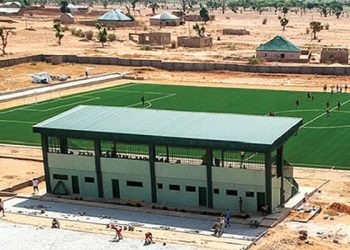There is yet no indication that government and Academic Staff Union of Polytechnics [ASUP] and the College of Education Academic Staff Union [COEASUP] are ready to end the strike that has lingered for seven months now and counting. The unions called the strike for failure on the part of government to keep its earlier promises in consideration of which an earlier strike by the unions was called off.
It is a matter of concern that strike actions by academic staff unions have in recent times been allowed to linger for lengths of time never recorded before in history. For a follow up strike to have lasted for so long raises credibility question on the part of the government that made the promises and failed to keep them. This seems to suggest that it had no intension of honouring those promises otherwise it has been given adequate time to make the necessary budgetary provisions for them and to set the implementation process in motion in the current year.
If there are any constraints on the part of the ministry of education in implementing the agreements reached with the unions, these should have been tackled through constructive engagement with the unions, which has not happened. The rally/protest the unions embarked upon last week is a clear demonstration that the education ministry is no longer on top of a matter that is within his responsibility. The call on the President to intervene in a matter in which a minister has adequate authority to handle is quite unfortunate.
We do not expect the minister of education to wait on the President to do his job. We hope and expect that the minister will wake up to his responsibility of addressing the issues in contest no matter what he does and how he accomplishes it.
Government needs to be reminded of the critical role that these institutions involved in practical training of their students are meant to fulfill in the economy. The polytechnics were established to fill a gap in the educational system as demand for practical skills in business and industry continues to grow. They are an effort to address the problem of schools rolling out people who have no idea of what to do with the knowledge they have obtained.
They are the moderating agents to the university system that is creating general academic knowledge at a time that specialized skills are required in the marketplace. To the extent that polytechnics take more direct responsibility for vocational guidance, they should be adequately empowered to fill the gap of practical manpower training for which they were set up.
The global trend towards technological applications warrants greater emphasis on practical skills development than rolling out strictly academic graduates. It is therefore important that we begin to give priority to these institutions responsible for vocational training instead of living them with their expressed feeling of second class workers in the education sector.
The economy cannot be better than the human resource quality at its command. The quality we feed into the education system is the quality of graduates we get. Our usual claim of having abundant human resources now wears a question mark in view of the quality of graduates we produce.
It is now apparent that despite our large population, we lack the right type of human resource quality. Neither government nor the business sector needs the knowledge so many people have acquired and are still acquiring from our schools. A rapidly declining fraction of our 170 million people is found relevant in today’s productive processes. The rest are roaming the streets jobless for lack of appropriate skills in the otherwise Africa’s largest economy.
The education minister should take greater responsibility to ensure the right mix of skills coming out of our schools. We expect that an orderly environment for learning with minimum academic disruptions should be the minimum standard for our schools going forward. We call for immediate steps to be taken by the ministry to end the lingering strike by the two academic unions to avoid a total loss of an entire academic session.














































